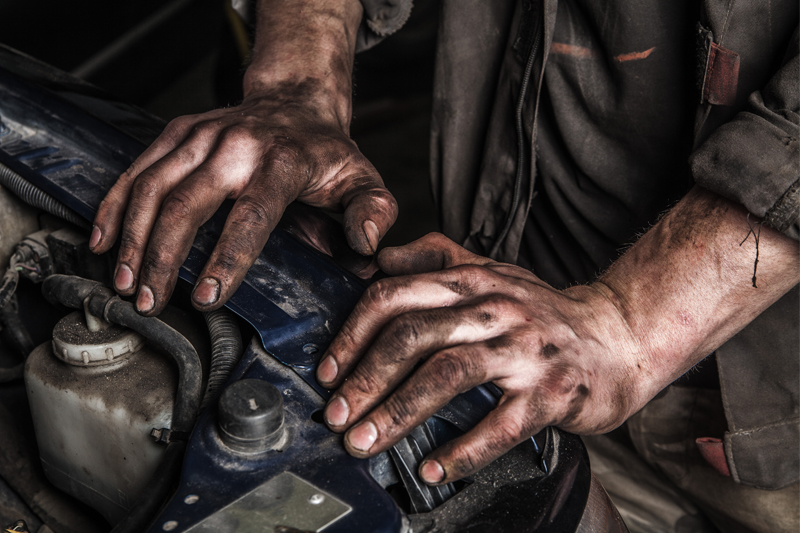Chris Brooks, a specialist in workplace skincare at Swarfega, explains why it’s important for those in garages to look after their most precious tools – their hands.
Skin disease can have serious consequences and, according to the World Health Organisation, occupational skin diseases are one of the three most frequent groups of occupational diseases. In a workshop environment, technicians and mechanics rely upon their hands to complete their work, so anything that stops them using their hands is a big deal. In the UK, the Health & Safety Executive lists motor mechanics as a job group with one of the highest risks of work- related skin problems. This is due to the frequent and prolonged exposure to oil, grease, cleaning and degreasing products.
Skin problems can come in many forms, with the most common being dermatitis. This can come in a number of guises – simply as a rash or irritated areas of skin, through to a severe allergic reaction to a contaminant. It’s commonly thought that allergies start when you’re a child. However, it’s possible to develop an allergic reaction to a contaminant you’ve had contact with every day for years. Once you’ve had an allergic reaction to a contaminant, however, your body will always react this way and there’s no turning back time.
Handy hints
The good news is that over the 70 years since Swarfega first started selling its hand cleanser, there have been huge advances in the understanding of the human skin. Here are the top tips from Swarfega to avoid causing issues with your skin:
1. Prevention
The best way to keep the skin on your hands in good condition is to prevent contact with contaminant in the first place – ideally avoiding contact, but using gloves where contact is required.
2. Protection
Products, such as Swarfega’s Protect cream, help to guard the skin against harmful contaminants. They also make it much easier to clean your hands at the end of your shift.
3. Cleanse
Washing your hands regularly will help prevent a build-up of soiling and reduce contact time with contaminants. According to a recent survey, Swarfega found that, on average, a mechanic washes their hands 10 times a day. It is recommended that you choose the right cleanser for the job – don’t use heavy-duty cleanser if you’ve only got light soiling, as repeated washing with heavy-duty products can also be harmful.
4. Restoration
After you’ve washed your hands, applying a restoration cream will help restore the natural oils and moisture to the skin that you’ve lost during washing.











